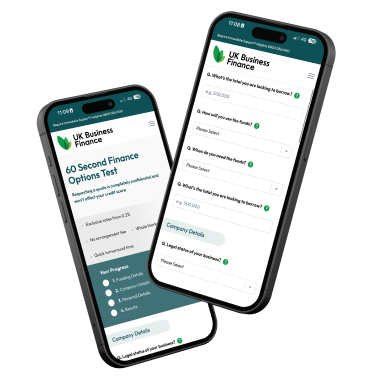Vehicle finance
Finance for business vehicles
What is vehicle finance?
Vehicle finance is a form of lending that helps you purchase a business vehicle or fleet of vehicles without using up valuable capital. You spread the cost over a fixed period whilst having full use of the asset(s) during this time.
You can use this type of funding to buy a range of commercial vehicles including cars, vans, buses, and trucks. Some forms of vehicle finance agreements build in ownership at the end of the contract, whilst others allow you to lease with flexible options when the lease term ends.
If your business relies on cars, vans, buses, or trucks to operate, purchasing them through a finance deal is typically the only realistic way to invest. So what forms of vehicle finance agreements might be available to you?
What are the different types of vehicle finance?
Various types of vehicle finance are available, which means you can tailor the funding to suit your specific commercial needs.
Hire purchase
Hire purchase can be a good option if you are looking to own the vehicle at the end of the agreement. You pay an initial deposit, which is usually around 10 per cent, and then a series of fixed monthly instalments, typically for up to five years. Once the repayments have been made you can pay a final fee to own the vehicle outright, if that is what you want.
Finance lease
A finance lease allows you unlimited use of the vehicle(s) and at the end of the lease, you have several choices. You can typically extend a finance lease for a further term, upgrade the vehicle, or change to a different model. Alternatively, you might want to hand the vehicle back if it has served its purpose.
Vehicle refinancing
You can release working capital tied up in a vehicle you already own, with no disruption to usage – a process known as vehicle refinancing. This involves selling the vehicle to the financier, and they rent it back to you with full usage rights. Once the agreement ends you become the owner of the vehicle again.
What are the benefits of vehicle finance?
A range of benefits makes vehicle finance an attractive option for businesses:
Cash flow is protected
Funding commercial vehicles by monthly instalments spreads the cost of expensive assets, commonly for a period of up to five years. It safeguards cash flow and preserves business capital.
Budgeting is easier
Monthly instalments are fixed, which makes budgeting easier. You do not have to worry about changing interest rates, and longer-term strategic plans can be made with greater confidence.
Funding options are flexible
A range of flexible vehicle finance options is available so you can choose a finance arrangement that works for your business model and future plans. Tailor the plan to your commercial needs.
There are potential tax advantages
There may be tax benefits and allowances available when taking out vehicle finance, depending on the type of vehicle finance you choose and your own circumstances. Payments may be tax deductible, for example, or capital allowances/grants might be available in some situations.
How to find the best vehicle finance deals
We can help you find the right type of vehicle finance for your business. UK Business Finance are commercial finance brokers offering free, no-obligation services. We search the whole of the market to find you the best deals, and also offer quotes for adverse credit.
We will make an application on your behalf and support you throughout the process, ensuring you have the best chance of a successful outcome.
Top Finance Tips
We work across a wide range of sectors throughout the UK, providing specialist advice to each sector.

How to financially prepare for investor exits
Whether your business is at an early stage or it’s more established, the financial boost provided by external investment, such as from private equity firms, angel investors, and venture capitalists, is invaluable.

How to finance a MBO
If you’re considering conducting a management buyout (MBO), there are various means by which you can fund it. Financing commonly involves a level of personal funding by individual members of the management team combined with additional external borrowing, such as bank loans and asset financing.

What lenders look for in a business loan application
Knowing what lenders look for in a business loan application helps you present your business in the best light – an important consideration, as being rejected for a loan damages your company’s credit rating and makes it difficult to borrow in the future.

What is a commercial finance broker?
A commercial finance broker is a professional intermediary who helps business owners to source the best lenders and deals. They provide a vital service that eases access to funding and ensures businesses obtain the most appropriate finance for their needs.




